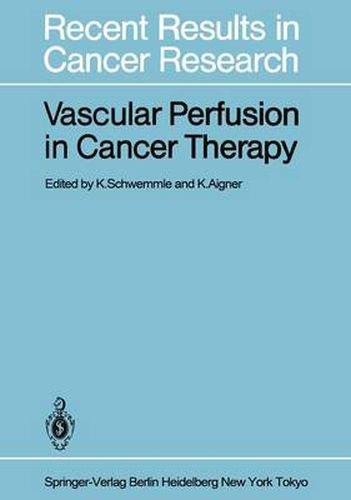Readings Newsletter
Become a Readings Member to make your shopping experience even easier.
Sign in or sign up for free!
You’re not far away from qualifying for FREE standard shipping within Australia
You’ve qualified for FREE standard shipping within Australia
The cart is loading…






This title is printed to order. This book may have been self-published. If so, we cannot guarantee the quality of the content. In the main most books will have gone through the editing process however some may not. We therefore suggest that you be aware of this before ordering this book. If in doubt check either the author or publisher’s details as we are unable to accept any returns unless they are faulty. Please contact us if you have any questions.
Substantial relief of discomfort may be anticipated by most patients suffering from pelvic and lower-extremity pain who are treated by arterial infusion of nitrogen mustard. Seventy-three patients with intractable pain secondary to malignancy arising in the pelvis received 83 percutaneous pelvic arterial infusions of this drug. Sixty infusions (72%) resulted in marked relief from pain for periods averaging 6-8 weeks. Advantages of the procedure are low toxicity, relative simplicity and availability of technique, and an acceptable rate of complications with minimal morbidity. Patients experiencing satisfactory results may expect significant relief from a second infusion for recurrent pain. The most rewarding result is the freedom from the cyclic return of pain characterized by oral and intramuscular analgesic therapy. Little or no relief can be expected in patients with pain caused by compression fractures of the vertebrae, or where the tumor burden is so great that adequate perfusion of the involved nerves is not possible. One should consider this procedure for controlling pain before resorting to the more dangerous and potentially disabling techniques of spinal cordotomy or intrathecal alcohol injection. References Bateman JR, Hazen JG, Stolinsky DC, Steinfeld JL (1966) Advanced carcinoma of the cervix treated by intra-arterial methotrexate. Am J Obstet Gynecol 96: 181-187 Calabresi P, Parks RW Jr (1970) Alkylating agents, antimetabolites, hormones. and other antiproliferative agents. In: Goodman LS, Gilman A (eds) The pharmacological basis of therapeutics, 4th edn.
$9.00 standard shipping within Australia
FREE standard shipping within Australia for orders over $100.00
Express & International shipping calculated at checkout
This title is printed to order. This book may have been self-published. If so, we cannot guarantee the quality of the content. In the main most books will have gone through the editing process however some may not. We therefore suggest that you be aware of this before ordering this book. If in doubt check either the author or publisher’s details as we are unable to accept any returns unless they are faulty. Please contact us if you have any questions.
Substantial relief of discomfort may be anticipated by most patients suffering from pelvic and lower-extremity pain who are treated by arterial infusion of nitrogen mustard. Seventy-three patients with intractable pain secondary to malignancy arising in the pelvis received 83 percutaneous pelvic arterial infusions of this drug. Sixty infusions (72%) resulted in marked relief from pain for periods averaging 6-8 weeks. Advantages of the procedure are low toxicity, relative simplicity and availability of technique, and an acceptable rate of complications with minimal morbidity. Patients experiencing satisfactory results may expect significant relief from a second infusion for recurrent pain. The most rewarding result is the freedom from the cyclic return of pain characterized by oral and intramuscular analgesic therapy. Little or no relief can be expected in patients with pain caused by compression fractures of the vertebrae, or where the tumor burden is so great that adequate perfusion of the involved nerves is not possible. One should consider this procedure for controlling pain before resorting to the more dangerous and potentially disabling techniques of spinal cordotomy or intrathecal alcohol injection. References Bateman JR, Hazen JG, Stolinsky DC, Steinfeld JL (1966) Advanced carcinoma of the cervix treated by intra-arterial methotrexate. Am J Obstet Gynecol 96: 181-187 Calabresi P, Parks RW Jr (1970) Alkylating agents, antimetabolites, hormones. and other antiproliferative agents. In: Goodman LS, Gilman A (eds) The pharmacological basis of therapeutics, 4th edn.